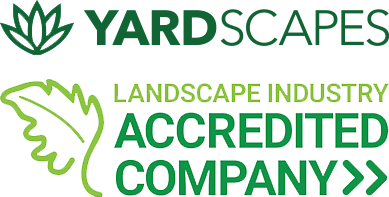More people are asking for information regarding organic lawn care. Many people want to decrease or eliminate the use of synthetic fertilizers and pesticides in their home lawns. There is concern some products may be harmful to humans, beneficial insects, wildlife, and pets. This is not necessarily true however. With proper use and common sense precautions, lawn care products are quite safe. That being said, organic lawn care does have some benefits over traditional lawn care.
The term conventional or traditional lawn care as used here, implies the use of inorganic fertilizers, or more correctly, soluble fertilizers. Most traditional lawn fertilizers are soluble fertilizers. They provide macro- and micro-nutrients to the lawn as soon as the fertilizers get wet and soak into the soil.
Organic fertilizers are not soluble—in other words, adding water to organic fertilizers doesn’t change them or make them readily available for plants to use. They must first be processed by microbes before the nutrients are in a form useable by plants. Inorganic fertilizers are in such a form that this intermediate microbe step is not required. As soon as soluble fertilizers become wet, they are ready for use by the plant.
The plant can’t tell the difference between a soluble fertilizer and an organic fertilizer. Organic fertilizers take longer before they become available for plant use. Soluble fertilizers become available much faster, which could be a problem. However, today, fertilizer producers have incorporated a time-release aspect to their fertilizer. This slows down the nutrient release time-table to a controlled release.
One of the main advantages of organic lawn care is that the homeowner is more involved in the health of their landscape and ecosystem. This is an important difference. It represents a commitment to the environment. This commitment benefits not only your lawn or landscape, but also the local wildlife including beneficial insects and microbes living in the soil.
The soil is the real beneficiary of organic lawn care. Part of an organic program is the addition of organic matter such as compost or lawn clippings to the soil. Over time, this additional organic matter greatly improves the health of the soil.
Improved soil contributes to healthy plants that will be less susceptible to damage from pests or environmental stress. Fertilizer may be applied less frequently than in conventional lawn care but timing of application becomes especially important. Weeds, insects, and diseases are managed by cultural practices that are oriented toward prevention. Natural organic methods also emphasize the recycling of organic wastes.
Limited scientific research has been done on exclusively natural organic lawn care programs. However, well-documented research has been done on many practices that are an integral part of organic lawn care such as core aeration, mowing height, and top-dressing with compost. Recommendations for a completely natural organic approach are therefore based on years of collective experience.
Being aware of the options involved in organic lawn care will make you a better informed gardener and a more responsible landowner.
©2005 – 2006 Landscape-America.com. All Rights Reserved
